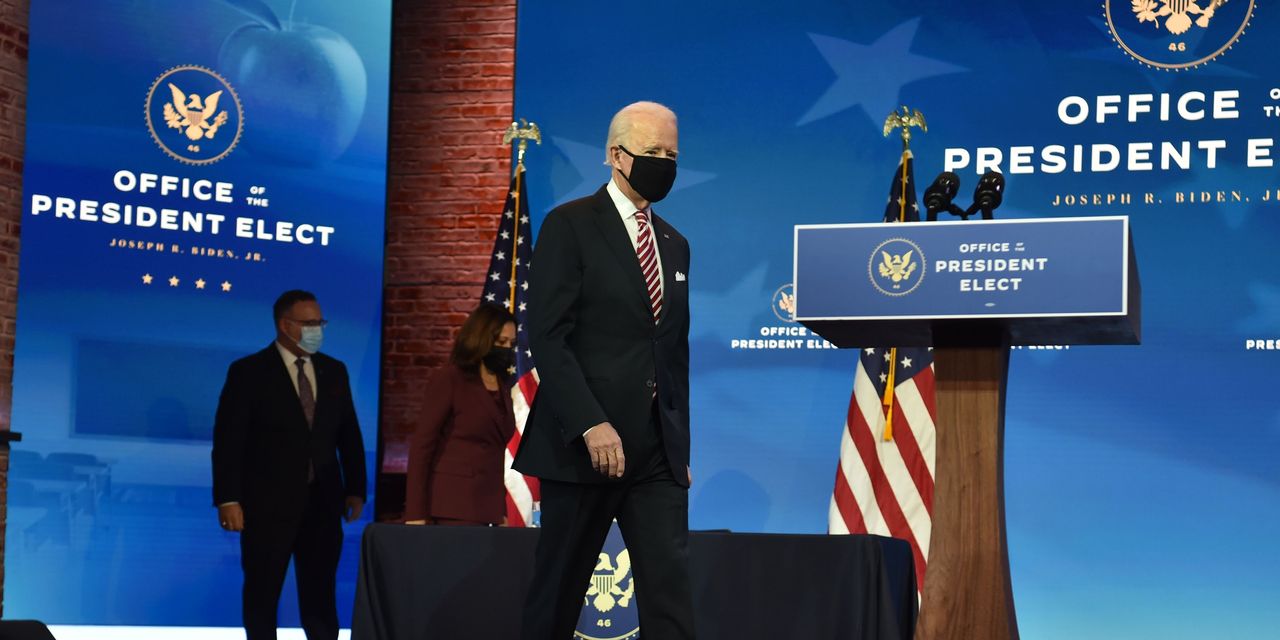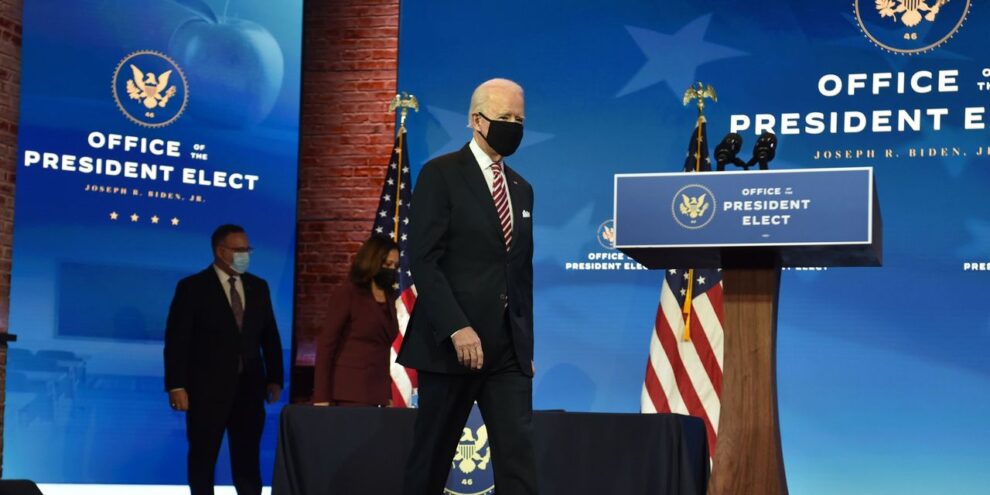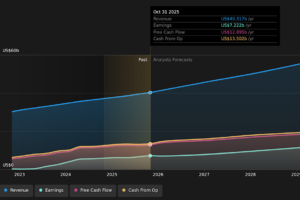
President-elect Joe Biden said he is “unlikely” to use his authority to unilaterally cancel $50,000 in student debt for individual borrowers, weighing in on a debate that’s been raging for several months.
“I’m going to get in trouble for saying this, [but] it’s arguable that the president may have the executive power to forgive up to $50,000 in student debt,” Biden told the Washington Post’s Karen Tumulty. “Well, I think that’s pretty questionable. I’m unsure of that. I’d be unlikely to do that.”
The idea of broad student-debt cancellation has its origins in Occupy Wall Street, but it burst in earnest onto the mainstream political stage during the Democratic primaries, when Elizabeth Warren and Bernie Sanders campaigned on some form of student-debt cancellation as they vied for the party’s nomination.
The combination of the economic devastation of the coronavirus pandemic and Biden’s election to the presidency has given the idea new urgency. With the status of Congress uncertain and the possibility that it will remain divided if Democrats fall short in the runoffs for Georgia’s two U.S. Senate seats next month, student-debt cancellation has emerged as a policy approach that the incoming administration could use to provide some relief to borrowers without Congress.
See: Republican Senate incumbent Loeffler falls behind Democrat Warnock in latest Georgia runoff polling
In September, Sen. Warren and Senate Majority Leader Chuck Schumer urged the incoming president to immediately cancel up to $50,000 in student debt, a call that other lawmakers, including House Democrats Ilhan Omar and Ayanna Pressley, have echoed.
They’ve argued that the president has the legal authority to cancel the debt.
In a letter accompanying Warren and Schumer’s resolution in September, attorneys from Harvard Law School’s project on Predatory Student Lending wrote that “Congress has granted the Secretary a more specific and unrestricted authority to create and to cancel or modify debt owed under federal student loan programs in the Higher Education Act (HEA) itself.”
In other words, the president could direct the secretary of education to cancel the debt.
That authority is what Biden appeared to be questioning in the interview published Wednesday. And even among those who support broad-based student-debt cancellation, there is some concern about pursuing that outcome through executive action.
David Bergeron, a senior fellow at the Center for American Progress, a left-leaning think tank, is in that camp. Bergeron, who worked at the Department of Education for more than 30 years, said going around Congress raises a number of legal questions, including how the department would pay back the money the agency borrowed from the Treasury Department when it originated the loans.
That, Bergeron said, would put Department of Education officials, including the secretary, at risk of violating the Anti-Deficiency Act, which essentially makes it illegal for an agency to spend money it doesn’t have.
As a result, Bergeron worries, he said, that the policy could draw legal challenges from student-loan servicers, lenders and other entities involved in the loan process because the cancellation could be viewed as a taking that’s barred under the Constitution. If the policy failed to hold up in court and the debt were ultimately reinstated, Bergeron said he’s concerned borrowers would be harmed.
“There are lots of people who could challenge this, [so] it is prudent for the Biden administration to take the time that’s necessary to examine the issue,” he said. “I would argue that the most important thing is to win Georgia, so the Democrats control the Senate and then it’s possible to do it legislatively.”
Biden has indicated previously that he’s open to canceling some student debt. During his campaign for president he proposed to “immediately cancel a minimum of $10,000 of student debt per person.” Biden reiterated the need to “immediately” forgive $10,000 in student debt when he introduced Miguel Cardona as his nominee for secretary of education on Wednesday, though Biden framed it as part of a “legislative plan.”
Alexis Goldstein, senior policy analyst at Americans for Financial Reform, a coalition of consumer, labor and other groups, said she puts more stock in what Biden campaigned on and has put in writing than in comments made to a columnist.
Nonetheless, “it’s obviously discouraging to hear him express some uncertainty about the legal authority,” said Goldstein, whose organization was part of a group of more than 200 organizations urging Biden to use his authority to cancel student debt on Day 1 of his administration.
“The legal authority is very clear,” Goldstein said. “It’s documented.”
Natalia Abrams, the executive director of Student Debt Crisis, an advocacy group, said that, despite Biden’s comments Wednesday, “the fight is not over” for broad-based student-debt cancellation through executive action.
Indeed, there is some indication that members of the Biden administration find the policy appealing. Bharat Ramamurti, a longtime Warren aide whom Biden recently named to his National Economic Council, has called student-debt cancellation by executive order “good economics and good politics.”
Biden’s recent comments come in the same week that Congress failed to extend the coronavirus payment pause on student loans as part of its $900 billion stimulus package (which itself was cast into eleventh-hour doubt by Donald Trump). Advocates had said that Congress’s failure to act on the student-loan issue increased the urgency for the Biden administration to act boldly following inauguration.
“I can feel that borrowers are worried that they’re going to be forgotten again,” Abrams said. “With the CARES Act, it’s one of the first times borrowers felt included in emergency relief, and we want to make sure that wasn’t just a one-off.”











